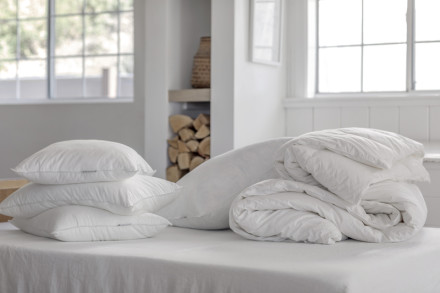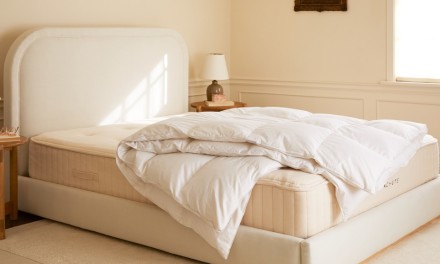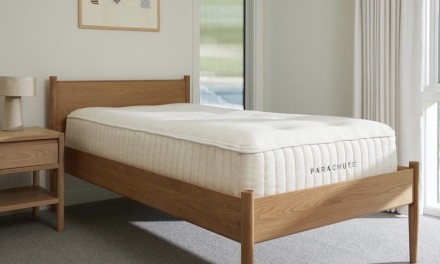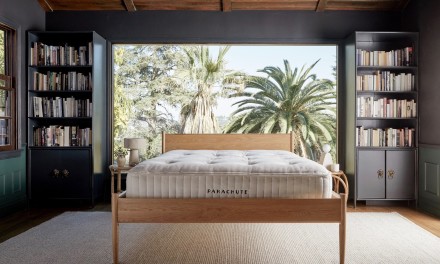Soft, cozy and luxurious, the down comforter is the capstone of the perfect bed setup. Warm but not too hot, snuggly but not too hefty, the right Down Duvet Insert transforms your bed into a cloud of comfort.
But what amount of down fill is right for you to get a good night sleep? That's where down fill power and personal preference comes into play.
To learn more about fill power and what to look for in your down duvets and bed sheets, read on for everything you need to know.
What is Down Fill in Bedding?
Down fill makes the ideal bedding covering because it’s light and lofty yet very breathable. Different than feathers, down is the fluffy coating clustered beneath the feathers of waterfowl that protect them from the elements. Most down can be found on the belly of geese and ducks, as this is the part that is exposed to water and must keep the bird warm.
For hundreds of years, humans have relied on down’s warmth and comfort. Fourteenth-century Europeans layered their mattresses with down-filled featherbeds and pillows, and eventually, we started using down-filled comforters on top, too. Durable and hearty, good down was something that was passed down through generations, and the highest quality down today should perform the same.
What is Down Fill in Bedding?
Down fill makes the ideal bedding covering because it’s light and lofty yet very breathable. Different than feathers, down is the fluffy coating clustered beneath the feathers of waterfowl that protect them from the elements. Most down can be found on the belly of geese and ducks, as this is the part that is exposed to water and must keep the bird warm.
For hundreds of years, humans have relied on down’s warmth and comfort. Fourteenth-century Europeans layered their mattresses with down-filled featherbeds and pillows, and eventually, we started using down-filled comforters on top, too. Durable and hearty, good down was something that was passed down through generations, and the highest quality down today should perform the same.

What is Down Fill Power and Why Is It Important?
The most important thing to consider when buying a Down Duvet Insert is fill power, which is essentially a measurement of how fluffy the down is. The higher the down fill power, the better the blanket. Fill power is expressed as a value, usually in the hundreds, equal to the number of cubic inches one ounce of that particular type of down fills. (For example, one ounce of 600 fill power down will take up 600 square inches of space, while 700 fill power will take up 700 square inches.) It’s a measurement of volume.
Higher fill powers (around 700) means a warmer and lighter comforter. That’s because fluffier down has higher insulating power (it can trap more air), so it requires less down to fill the same space than a lower fill power down (say, 600), which needs to be heavier to get the same amount of warmth. In a nutshell, the best quality duvets have high fill power so they’re perfectly warm yet incredibly lightweight.
For more information about what makes lightweight down duvet covers so special, read on:
Guide to Duvets & Duvet Covers: Everything You Need to Know
Best Lightweight Bedding: Naturally Cooling Bedding Materials to Know
What is Down Fill Power and Why Is It Important?
The most important thing to consider when buying a Down Duvet Insert is fill power, which is essentially a measurement of how fluffy the down is. The higher the down fill power, the better the blanket. Fill power is expressed as a value, usually in the hundreds, equal to the number of cubic inches one ounce of that particular type of down fills. (For example, one ounce of 600 fill power down will take up 600 square inches of space, while 700 fill power will take up 700 square inches.) It’s a measurement of volume.
Higher fill powers (around 700) means a warmer and lighter comforter. That’s because fluffier down has higher insulating power (it can trap more air), so it requires less down to fill the same space than a lower fill power down (say, 600), which needs to be heavier to get the same amount of warmth. In a nutshell, the best quality duvets have high fill power so they’re perfectly warm yet incredibly lightweight.
For more information about what makes lightweight down duvet covers so special, read on:
Guide to Duvets & Duvet Covers: Everything You Need to Know
Best Lightweight Bedding: Naturally Cooling Bedding Materials to Know
What to Consider When Buying a Down Duvet?
You’ll need to consider your climate and how you like to sleep when deciding on the right fill power for your comforter. Most down duvet inserts – including ours – come in lightweight and all season varieties. The difference here is amount of fill (in ounces). All season duvet inserts have more of the same high fill power down than their lightweight compatriots, making them warm enough for frigid winter nights without being heavy and suffocating.
You’ll also want to look for a baffle box design, which means the duvet is loosely quilted in a grid pattern to keep the filling evenly distributed throughout the comforter. This allows the down to reach its maximum loft, but keeps it all from sliding to the bottom.
Finally, you may want to consider down alternative instead of down if you're allergic to down feathers or prefer to use synthetic materials over animal-products. Learn more about whether to go with down or down alternative in our Down vs Down Alternative guide.
Got all that? Good. Now get the best if you haven’t already, consider the Down Duvet Insert or Down Alternative Duvet Insert for your bedroom.
For more resources on picking the right bedding materials, read on
Linen: Know Your Bedding Like a Designer
Percale: Know Your Bedding Like a Designer
Sateen: Know Your Bedding Like a Designer
Brushed Cotton: Know Your Bedding Like a Designer
Matelasse: Know Your Bedding Like a Designer
Sateen vs Silk vs Satin: What's the Difference?
What Is Long-Staple Egyptian Cotton?
What is Waffle Weave? Which Waffle Weave Home Goods Are Best?
Guide to Bed Sheets: Choose the Right Fabric and Style for Your Bed
What to Consider When Buying a Down Duvet?
You’ll need to consider your climate and how you like to sleep when deciding on the right fill power for your comforter. Most down duvet inserts – including ours – come in lightweight and all season varieties. The difference here is amount of fill (in ounces). All season duvet inserts have more of the same high fill power down than their lightweight compatriots, making them warm enough for frigid winter nights without being heavy and suffocating.
You’ll also want to look for a baffle box design, which means the duvet is loosely quilted in a grid pattern to keep the filling evenly distributed throughout the comforter. This allows the down to reach its maximum loft, but keeps it all from sliding to the bottom.
Finally, you may want to consider down alternative instead of down if you're allergic to down feathers or prefer to use synthetic materials over animal-products. Learn more about whether to go with down or down alternative in our Down vs Down Alternative guide.
Got all that? Good. Now get the best if you haven’t already, consider the Down Duvet Insert or Down Alternative Duvet Insert for your bedroom.
For more resources on picking the right bedding materials, read on
Linen: Know Your Bedding Like a Designer
Percale: Know Your Bedding Like a Designer
Sateen: Know Your Bedding Like a Designer
Brushed Cotton: Know Your Bedding Like a Designer
Matelasse: Know Your Bedding Like a Designer
Sateen vs Silk vs Satin: What's the Difference?
What Is Long-Staple Egyptian Cotton?
What is Waffle Weave? Which Waffle Weave Home Goods Are Best?
Guide to Bed Sheets: Choose the Right Fabric and Style for Your Bed






